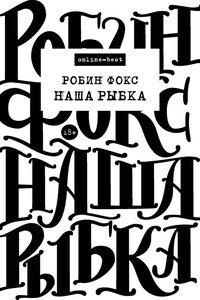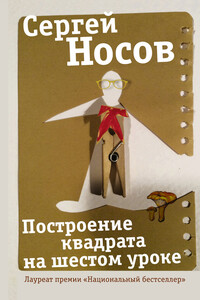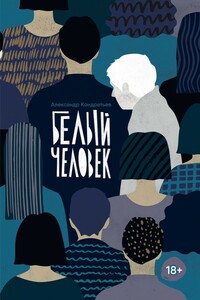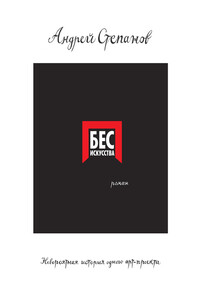36 Arguments for the Existence of God - [45]
Cass figured that Professor Klapper hadn’t wanted to embarrass Professor Knudsen with the more substantive emendation. As for Cass’s too-near neighbor, she was muttering, “Fasten your seat belts. It’s going to be a bumpy night.”
Cass’s fears regarding his bench-mate were realized. She never let up. His desire to shush her struggled with his deeply ingrained sense of politeness. As usual, the latter prevailed. He lost the thread at 1750 B.C.E, with that “figure shrouded in legend whom we call by the Greek name Zoroaster, though ‘Zarathustra’ was the name much preferred by Nietzsche,” unable to follow the labyrinthine trail as it wound its way to the “omen-encrusted moment of the chosen now, when it is becoming awkward for even the most scientistic non-seers of the hardened Materialist Mafia, with their stranglehold on our great institutions of learning, to deny the liminal sublime before us.”
“Well, were you able to follow that?” the dreadful girl asked him when it was all over. She was grinning.
Cass shook his head no.
“Where you headed now?”
“To the reception for Professor Klapper at the Faculty Club.”
“You are? Me, too!”
It was a private reception with various big shots invited, but Jonas Elijah Klapper had secured invitations for the seven graduate students of his own department.
“We might as well head on over,” the girl announced. “Do you know the way?”
“No, not really.”
“You’re not Harvard?”
“No, I’m Frankfurter.”
“No kidding! I went there as an undergraduate! What are you there?”
“Graduate student.”
“What department?”
“Faith, Literature, and Values.”
“That’s a department?”
“That’s Jonas Elijah Klapper’s department.”
“I don’t think they had it when I was there.”
“No, they didn’t. They just created it this year in order to get him to come.” He knew he was bragging.
“So he’s the first professor in the Department of Faith, Religion, and whatsit?”
“Faith, Literature, and Values. That’s right. He’s the whole department.”
“Well, I know he loves his colleagues.”
The girl laughed at her own joke, and Cass smiled politely.
“What did you major in at Frankfurter?” he asked.
“Anthropology.”
“How was that?”
“Total bullshit.”
“I’m sorry to hear that.”
“No, it worked out great. I needed to detox from all that verbiage, so what do you think I did?”
“What did you do?”
“I went to the Amazon to study the Onuma. That was as far away as I could get from bullshit and still remain in academia.”
“Who are the Onuma?”
“They live in the rain forest, and they’re often described as the last of the hunter-gatherers, although, technically speaking, that’s not exactly right, since they garden. They’re one of the last cultures to come in contact with modern civilization.”
“But now they’ve come in contact with you.”
“And they’ll never be the same!”
“Isn’t that a problem?”
“You mean like Heisenberg’s Uncertainty Principle, but with bigger particles?”
“Yeah, like that.”
“Well, actually, Absalom has thought about that quite a lot.”
“Absalom?”
“Absalom Garibaldi. I work under him. He started studying the Onuma in 1964. He walks a fine line between a hands-off policy and humanitarian intervention. Just think about sickness. Their view is that disease is caused by the curses of their enemies and the only way to combat the curses is to blow ebene up their nostrils, which is one hell of a hallucinogenic drug, and go into a trance where you can undo the curse, and that view is not anything that we’re going to try and talk them out of. But if Absalom sees a child dying of a bacterial infection, he’s going to slip the kid some antibiotic to go along with the ebene and the witch doctor’s charms. Obviously, our being there leaves a footprint, but that isn’t really an argument against our studying them, especially since it can shed so much light on our evolutionary past.”
“I didn’t mean to suggest otherwise. I was just being facile.”
“It’s nice that you can admit that. I assume you haven’t been an academic for long.”
“No. I’m a first-year grad student.”
“What made you decide to go to Frankfurter?”
“Jonas Elijah Klapper.”
“Yeah, like me. I just went where Absalom was.”
“To the Amazon.”
“Yes, but I meant my institutional affiliation.”
“Which is here?”
“Harvard? No. I’m at Berkeley. When I first started working with Absalom he was at Tulane, but I just switched when he did.”
“Yeah, some of Professor Klapper’s grad students did the same when he came from Columbia to Frankfurter.”
“Were you a Frankfurter undergrad?”
“No, Columbia.”
“So basically neither of us knows where the hell we’re going right now.”
They had walked determinedly across Harvard Yard, each following the other, and now exited onto a street, which they crossed.
“That looks like the right place,” the girl announced, pointing to a redbrick building not noticeably different from any of the others around it. “Excuse me, is that the Faculty Club?” the girl asked a woman passing by.
“Yes, it is.”
“I always find my way,” she said, turning back to Cass, “even when I have no idea where I’m going. It’s inexplicable.”
“It must come in handy in the rain forest. What country do the Onuma live in?”

Я был примерным студентом, хорошим парнем из благополучной московской семьи. Плыл по течению в надежде на счастливое будущее, пока в один миг все не перевернулось с ног на голову. На пути к счастью мне пришлось отказаться от привычных взглядов и забыть давно вбитые в голову правила. Ведь, как известно, настоящее чувство не может быть загнано в рамки. Но, начав жить не по общепринятым нормам, я понял, как судьба поступает с теми, кто позволил себе стать свободным. Моя история о Москве, о любви, об искусстве и немного обо всех нас.

Сергей Носов – прозаик, драматург, автор шести романов, нескольких книг рассказов и эссе, а также оригинальных работ по психологии памятников; лауреат премии «Национальный бестселлер» (за роман «Фигурные скобки») и финалист «Большой книги» («Франсуаза, или Путь к леднику»). Новая книга «Построение квадрата на шестом уроке» приглашает взглянуть на нашу жизнь с четырех неожиданных сторон и узнать, почему опасно ночевать на комаровской даче Ахматовой, где купался Керенский, что происходит в голове шестиклассника Ромы и зачем автор этой книги залез на Александровскую колонну…

В городе появляется новое лицо: загадочный белый человек. Пейл Арсин — альбинос. Люди относятся к нему настороженно. Его появление совпадает с убийством девочки. В Приюте уже много лет не происходило ничего подобного, и Пейлу нужно убедить целый город, что цвет волос и кожи не делает человека преступником. Роман «Белый человек» — история о толерантности, отношении к меньшинствам и социальной справедливости. Категорически не рекомендуется впечатлительным читателям и любителям счастливых финалов.

Кто продал искромсанный холст за три миллиона фунтов? Кто использовал мертвых зайцев и живых койотов в качестве материала для своих перформансов? Кто нарушил покой жителей уральского города, устроив у них под окнами новую культурную столицу России? Не знаете? Послушайте, да вы вообще ничего не знаете о современном искусстве! Эта книга даст вам возможность ликвидировать столь досадный пробел. Титанические аферы, шизофренические проекты, картины ада, а также блестящая лекция о том, куда же за сто лет приплыл пароход современности, – в сатирической дьяволиаде, написанной очень серьезным профессором-филологом. А началось все с того, что ясным мартовским утром 2009 года в тихий город Прыжовск прибыл голубоглазый галерист Кондрат Евсеевич Синькин, а за ним потянулись и лучшие силы актуального искусства.

